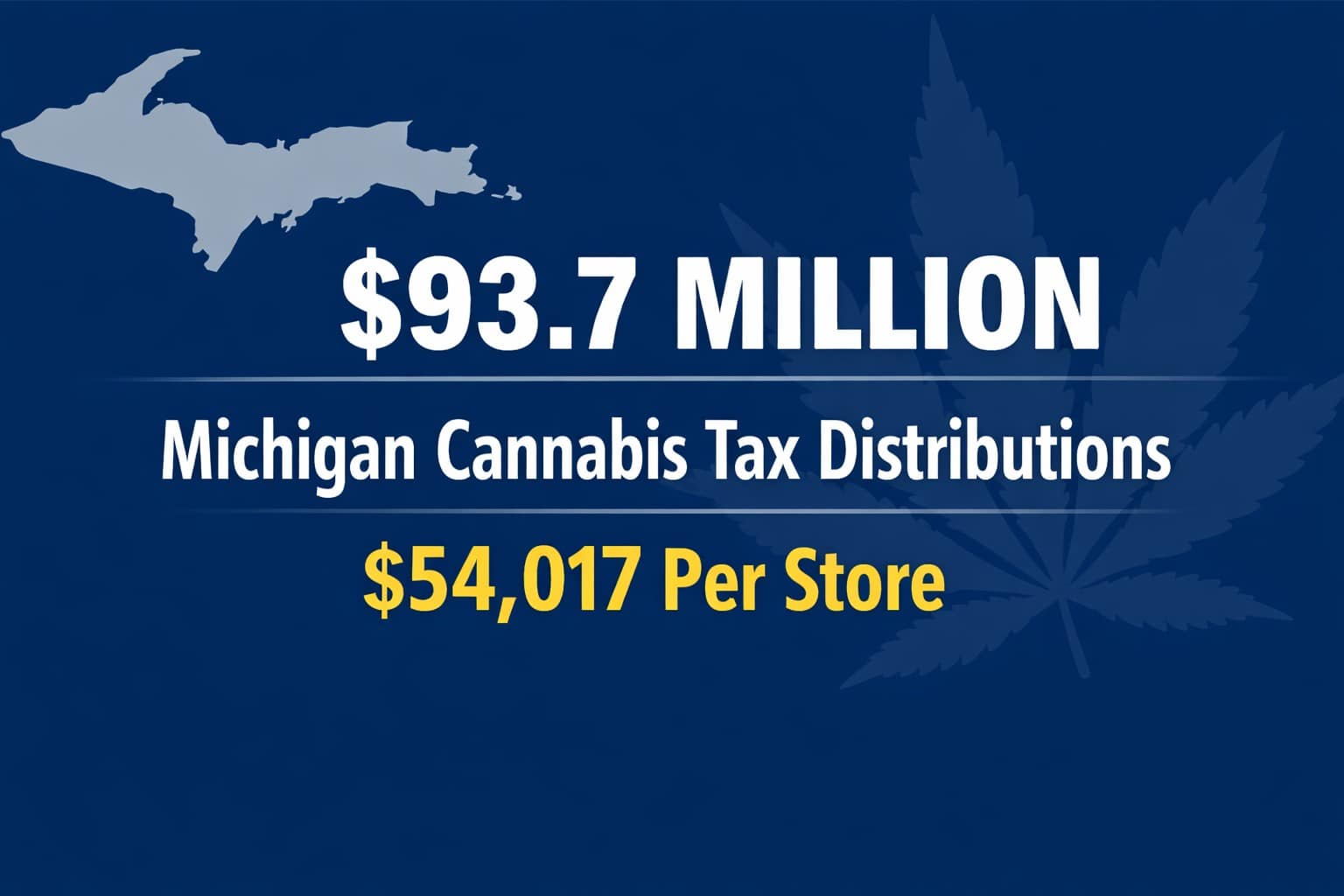WASHINGTON DC – U.S. House Republicans have removed marijuana banking protections from a critical government funding bill, thus exposing banks to potential federal crackdowns on cannabis-related businesses.
1. Why Did The House Republicans Drop the Cannabis Banking Protections from Funding Bill?
A controversial provision within a recent bill was blocked after facing significant internal opposition. According to a Thursday afternoon report by The Hill. This provision would have prohibited the use of government funds to penalize financial institutions. Solely for serving legal hemp and marijuana businesses.
2. Limited Options for Cannabis Banking in Michigan:
In Michigan, a dozen or so small banks and credit unions provide cannabis banking services. But at very high monthly costs. Medium and large banks do not because they are afraid they will lose their federal charters. This is because Cannabis now is a Schedule I drug, the same as Heroin and Cocaine.
3. Impact of GOP Decision on Legal Cannabis Businesses Across the U.S:
Rep. David Joyce (R-Ohio), chair of the subcommittee overseeing the funding bill, responded to colleagues’ concerns about a provision in the GOP’s annual financial services and general government legislation. This highlights the bill’s impact on various sectors, including cannabis policy and banking regulations.
Rep. David Joyce Advocates for States’ Rights in Cannabis Regulation:
“With over 40 states enacting some degree of cannabis reform, it is past time that the federal government respects the will of these states. This issue is especially pertinent as cannabis regulations have been proven to increase public safety and quality of life for Americans,” Joyce stated.
Adding, “My Financial Services and General Government bill included provisions to do just that. And ensure states’ rights to make the best choices for their unique constituencies are protected.”
4. Congressional Debate: States’ Rights vs. Federal Law on Marijuana:
Initially, Joyce’s bill included a provision designed to safeguard states’ autonomy in regulating cannabis. However, during a recent subcommittee markup, Rep. Chuck Edwards (R-N.C.) criticized this banking protection language. He contended that marijuana’s continued federal illegality could make his actions seem like tacit approval. Edwards emphasized the need for clarity in federal cannabis policies amidst evolving state laws.
“Our country has never allowed a federally illegal activity to be banked. It’s also important to note that, despite some states trying to legalize marijuana, a Schedule I drug, marijuana is still illegal,” Edwards argued.
He further insisted that marijuana should remain illegal, citing growing evidence of its potential harm.
5. Growing Support for Cannabis Banking Reforms in Congress:
The ongoing debate underscores a clear division within Congress, especially among Republicans, regarding the legalization of recreational marijuana. However, there is a burgeoning movement advocating for cannabis banking reforms. The increasing number of states is legalizing recreational marijuana. Consequently, this, along with the growing public support for legalization nationwide, is largely fueling this momentum. These factors are reshaping discussions on federal cannabis policies and banking regulations, highlighting a shifting trend in U.S. cannabis laws.
6. Overview of the Secure and Fair Enforcement Banking Act (SAFE Act):
The Secure and Fair Enforcement (SAFER) Banking Act of 2023 was first introduced by a bipartisan group in Congress. This banking act aims to provide protections for federally regulated financial institutions that serve state-sanctioned marijuana businesses. The bill would resolve the conflict between federal and state laws. It will do so by creating a safe harbor for banks, credit unions, and other financial institutions to provide services to these businesses without fear of penalties.
By shifting cannabis businesses and their employees into the financial mainstream, the SAFER Banking Act:
- Would promote public safety
- Expand access to deposit accounts
- Enable these businesses to operate more effectively
The legislation has gained momentum, with the Senate Banking Committee. If enacted, SAFER Banking could significantly impact the cannabis industry. The Act could stimulate growth and normalize financial transactions for legal marijuana businesses.
Rep. Joyce Addresses Bipartisan Support for Cannabis Banking Measures:
“While the provisions maintain strong bipartisan support, as Chairman, I will work to alleviate their concerns but will not delay my responsibility to fund the government. And therefore my legislation in the meantime,” Joyce said.
Final Thoughts:
The decision by House Republicans to strip cannabis banking protections from the government spending bill reflects a complex aspect of political divisions. It also highlights policy concerns surrounding marijuana legalization in the United States. While proponents argue for states’ rights and improved banking access for legal cannabis businesses, opponents raise issues about federal law and potential risks associated with banking services for an illegal substance under federal statutes. This debate underscores the evolving nature of cannabis regulation. It also highlights the challenges faced by policymakers in reconciling state-level reforms with federal mandates.
For more latest news and updates visit MITechnews.
FAQs:
1. How did House Republicans remove the cannabis banking protections?
House Republicans, particularly Rep. Chuck Edwards (R-NC), argued that the provision amounted to an “affirmative authorization disguised as a limitation” and that the country has never allowed federally illegal activities like marijuana to be banked. Some Republicans expressed concerns about the policy substance of the measure.
2. What impact will be striping the cannabis banking protections have on the legal cannabis industry?
Removing the cannabis banking protections is a blow to the legal marijuana industry. As it maintains the challenges businesses face in accessing banking services due to the federal prohibition on cannabis. This forces cannabis companies to operate in cash, making them targets for crime.
3. What is the current status of cannabis legalization in the U.S.?
Over 40 states have enacted some degree of cannabis reform, but marijuana remains federally illegal as a Schedule I drug. The debate highlights the ongoing division within Congress, particularly among Republicans, over the legalization of recreational marijuana.






